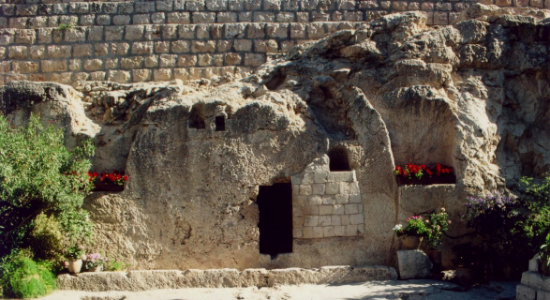Today I can share with you by kind permission of Monarch the second chapter of my friend Phil Moore’s new book Straight to the heart of Moses.. The third will be made available to those who subscribe to my email newsletter.
GOD’S PRISON BREAK (1:1-2:10)
“But the more they were oppressed, the more they multiplied and spread.” (Exodus 1:12)
When God wants to be seen through his People, there is simply no obstacle strong enough to stop him. If you were impressed by Michael Schofield’s elaborate plans to escape from Fox River State Penitentiary in the TV series “Prison Break”, then you will love what happens in Exodus 1 and 2. The Greek word Exodus means literally exit or way out, and these chapters form the prelude to the Old Testament’s great escape story.
Make no doubt about it, Egypt in the fifteenth century BC was the world’s largest prison. The seventy Hebrews had gone there in obedience to the Lord’s promise in Genesis 46 that he would turn them into a mighty nation in Egypt and bring them back to Canaan as conquerors of the land. Almost four centuries later, such promises looked like pipe dreams, and the Devil’s agenda to keep the Lord invisible looked more successful than the plotting of a clever prison guard on any television show.
First, the Hebrews lost their privileged status in the nation. Joseph had saved Egypt from disaster under the Twelfth Dynasty of pharaohs and his family had been rewarded with possession of Goshen, the most fertile fields in the land. Pharaoh appointed Joseph as his royal vizier and mummified his body when he died as if he were one of his own. But shortly after Joseph’s death, the Twelfth Dynasty fell and five new dynasties came and went during two turbulent centuries known as the Second Intermediate Period. Pharaoh Ahmose I of the Eighteenth Dynasty founded the New Kingdom by expelling the Canaanite Hyksos, but this made him naturally suspicious of the Hebrews who remained.[1] Hadn’t these foreigners originally come from Canaan? Were they not natural allies to the Hyksos if they reappeared with a new army? So he enslaved them and forced them to build great monuments which shouted to the world that Egypt’s new regime was here to stay.[2] Pharaoh turned their Goshen into his Gulag.
But the plan backfired. Spectacularly. Moses tells us in 1:12 that “the more they were oppressed, the more they multiplied and spread.” He uses five separate Hebrew verbs in 1:7 alone to describe the ensuing Hebrew baby boom.[3] Alarmed by the Egyptians’ open hatred towards them, Jacob’s family tried to multiply and soon became a seven-figure nation.[4] God had promised Abraham this would happen in Egypt in Genesis 15, and he was at work behind the Devil’s clumsy scheming. “The Lord made his people very fruitful; he made them too numerous for their foes, whose hearts he turned to hate his people.”[5]
The Devil tried a second strategy. He incited Pharaoh’s heart to order the Hebrew midwives to murder every baby boy at birth. Future Hebrew slave-girls were useful to Egypt, but boys were potential insurrectionists and must not be allowed to live. Again this fresh attempt to thwart God’s plan backfired, as it galvanised the flagging faith of the dispirited Hebrews to put their hope in him. Spurred on by Pharaoh’s threats of murder and the Hebrew midwives’ brave defiance, Moses tells us in 1:20 that “the people increased and became even more numerous.”
Satan’s third strategy was increasingly desperate, provoking Pharaoh to order that every Hebrew baby boy be drowned in the River Nile. This time the Lord’s response outshines the very best of Michael Schofield, as he turns Satan’s worst into the centrepiece of his plan. “One weak link can break the chain of a mighty dynasty,” worries Pharaoh in the animated movie “The Prince of Egypt”.[6] He had no idea that the Lord was smarter by far and could even use infanticide as a way to smuggle his deliverer into Pharaoh’s palace.
Pharaoh’s decree forces two Hebrew parents to take their baby boy down to the river and hide him in a basket among the reeds. They pray to the Lord for a miracle, and he reveals himself as God-the-Saviour when Pharaoh’s very own daughter finds the baby and adopts him as her son. By God’s power, he had not been overheard crying during his three months in hiding, but now he cries at the right moment to move Pharaoh’s daughter to compassion. His sister Miriam is hiding and appears in time for the Lord to use her to make Pharaoh pay Moses’ mother to look after his enemy![7] The Lord runs rings around his would-be opponent Satan. He is smarter by far and will let nothing foil his plan.
Even now, God hasn’t finished. He has another trump card left to play. The baby grows up with a dual nationality which is epitomised by his name. Moses means Drawn-Out in Hebrew, but it also means Born in Egyptian and sounds like the names of Pharaohs Ahmoses and Thutmoses.[8] Moses is therefore given a royal education in Egypt’s wisdom, and gains unparalleled know-how of the inner workings of Pharaoh’s court, yet his primary spiritual influence remains his mother so that “when he had grown up, he refused to be known as the son of Pharaoh’s daughter. He chose to be mistreated along with the people of God rather than to enjoy the pleasures of sin for a short time.”[9]
The Devil’s three strategies to thwart God’s great prison break had failed, because God wants to be seen through his People. All those strategies did was create a larger, more unified, more devout Hebrew nation, which cried out to God for a deliverer and found one forged in the furnace which the Devil had stoked against them.
The story of God’s great escape is even cleverer than Michael Schofield’s “Prison Break” at its most fanciful. This baby in the basket grew up and went on to write Exodus as his personal account of the Lord as God-the-Saviour. He smiles at us through these opening verses and assures us that nothing can stop the Lord from succeeding in his plan. He is going to be seen through his People.
[1] This is why Stephen chooses a Greek word in Acts 7:18 which emphasises that this ruler was not another similar (allos) Pharaoh, but another different (heteros) Pharaoh, from a completely new dynasty.
[2] Don’t be confused by the reference to Rameses in 1:11. Some scholars put this together with Galatians 3:17 (where Paul is humouring a Septuagint mistranslation) to argue that the Exodus took place in the 13th century BC under Pharaoh Rameses II, but Genesis 15:13, Exodus 12:40 and the chronology of Judges show us that this must be a later editorial update to the place name, like the one in Genesis 14:14. That also means that Exodus 6:16-20 must give only a selective, abridged genealogy.
[3] He tells us literally that the Hebrews were fruitful, teemed, multiplied, grew very numerous and filled the land.
[4] As a result, although the word Israelite is only used twice in Genesis, it is used over 100 times in Exodus.
[5] Psalm 105:24-25. We will look in more detail in the chapter “Hardened” at how God’s sovereignty works.
[6] “The Prince of Egypt”, Dreamworks Pictures (1998).
[7] Miriam is not named in chapter 2, but she reappears in the story by name from Exodus 15:20-21 onwards.
[8] Ahmoses means Born-to-[the-moon-god]Aah and Thutmoses means Born-to-[the-magic-god]Thoth. Both names usually lose the final ‘s’ in English. The 19th-Dynasty Pharaoh Rameses means Born-to-[the-sun-god]Ra.
[9] Hebrews 11:24-25. This is why Moses flouted Egyptian convention by refusing to marry even at 40. Forbidden from marrying a Hebrew, he refused to marry an Egyptian girl instead. The Lord rewards him with Zipporah in a scene which deliberately echoes Jacob meeting Rachel in Genesis 29:10.















